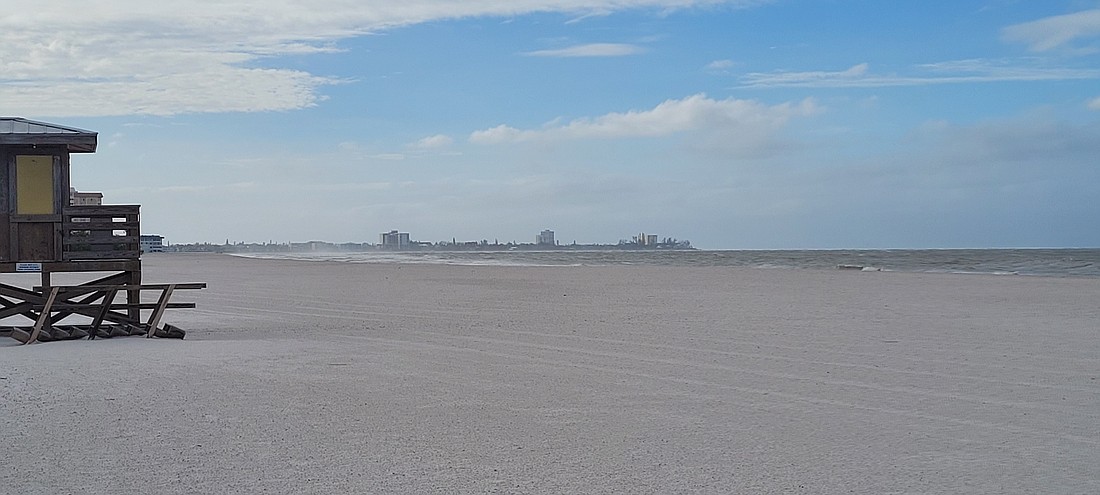During its Dec. 4 meeting, the Sarasota City Commission was briefed by staff on the state legislative priorities for the city for 2023. The report, submitted for commission approval, included state appropriations for city projects totaling $5 million.
Appropriations include:
- Bobby Jones Golf Course & Nature Park: $400,000 for habitat creation and passive recreational amenities.
- Sarasota Bay Park Project: $500,000 to pretreat stormwater flowing directly into Sarasota Bay.
- Whitaker and Hudson Bayou: $800,000 for water quality improvements and flood reduction projects prioritized in the Sarasota Bay Watershed Plan.
- Sarasota Performing Arts Center: $700,000 to support the design and pre-construction planning of the regional cultural attraction.
- Legacy Trail Regional Network: $500,000 to extend multimodal connectivity and access throughout the City to the community-supported and funded 18-mile system that extends from Venice to Sarasota.
- St. Armands Streetscape: $700,000 to improve safety, connectivity and sense of place/regional destination.
- Main Street Streetscape: $400,000 to improve safety, connectivity and sense of place/regional destination
- Lido Beach Dune Project: $1 million to design and construct a dune system for the recently renourished Lido Beach to further protect properties, improve resiliency to storm and sea level rise impacts, and protect and increase habitat.
Legislative priorities identified included matters of home rule. water quality and environment and information technology. They included:
Home rule
Support removal of state preemption on local governments ability to regulate vacation rentals, tree removal, home-based businesses, and placement of wireless communications equipment within city rights-of-way
Building inspections
- Support state efforts to enact a 40-year building inspection program affordable housing.
- Support full preservation of the Sadowski Housing Trust Funds to be used solely for housing programs homelessness/mental health initiatives.
- Support state funding for local homelessness programs, including case management, mental health initiatives, and additional psychiatric beds.
- Support a public records exemption for “individual identifying information” contained in the Homeless Management Information System.
Climate, energy, water quality and environment
- Support legislation to close loopholes in current law exemptions from municipal tree ordinances that have caused litigation and abuses. Amend current law to apply only to developed, single-family residential property and identify industry-appropriate standards for assessing tree risk,
- Support legislation that assists municipalities with the assessment, testing, mitigation and compliance related to perfluoroalkyl and polyfluoroalkyl substances and groundwater contamination.
- Support legislation to expand the funding sources, including the state revolving loan fund, for water quality preservation and enhancement projects/programs and assist municipalities to upgrade drinking and wastewater infrastructure.
- Support efforts to reduce impacts from harmful algae blooms in the Gulf of Mexico and Bay Fiscal.
- Support legislation that reforms the communications services tax in a manner that is revenue neutral, provides a uniform method for taxing communication services, and enhances its reliability as a critical local government revenue source.
Information technology
- Support legislation dedicating state resources for the enhancement of municipal cybersecurity by providing funding for technical assistance, threat assessments, employee training, infrastructure improvements and data protection; including the protection of confidential data such as law enforcement personnel information and plans for government buildings.
- Support funding for wireless and broadband infrastructure in areas with limited access, particularly those exposed during the virtual learning and remote work environments of COVID-19.

